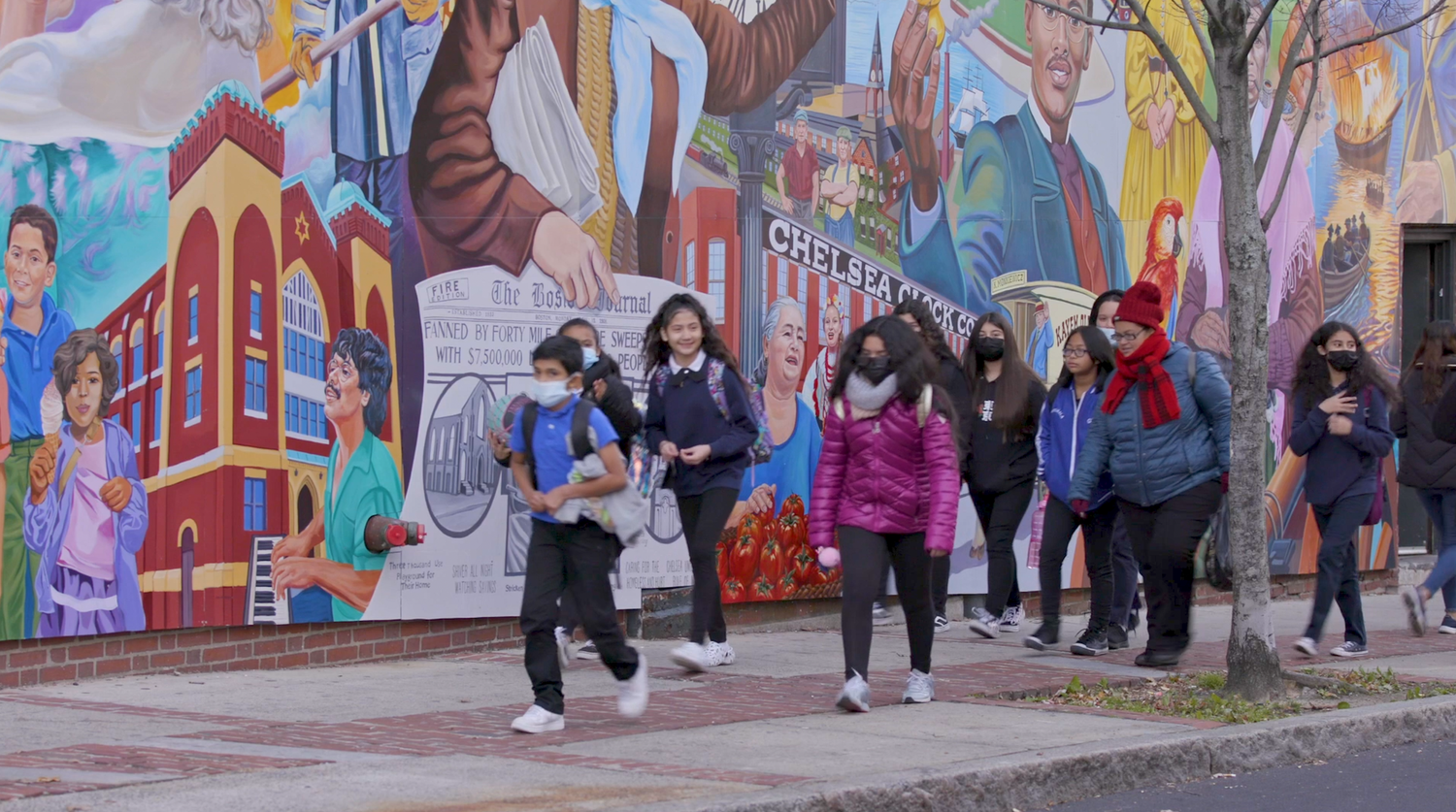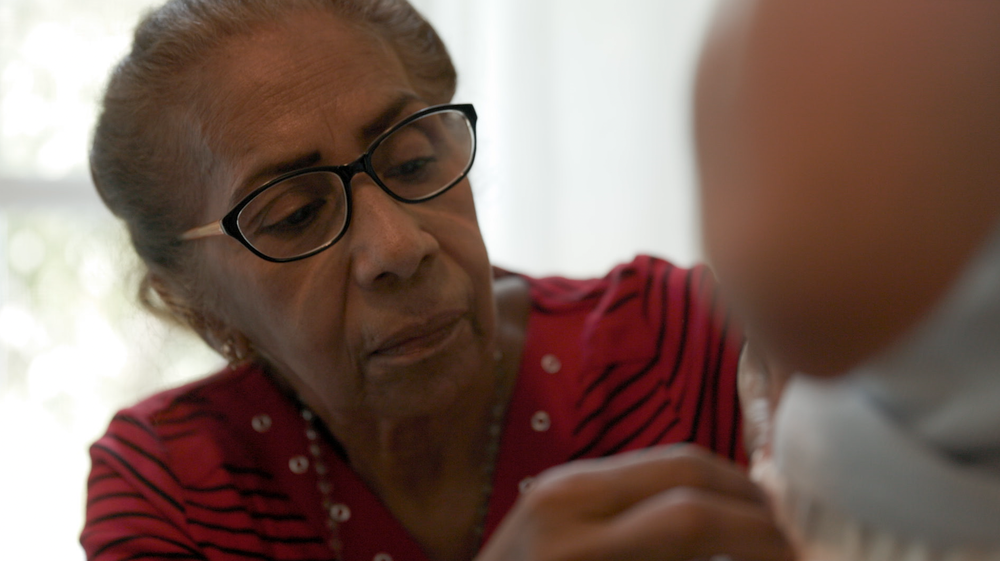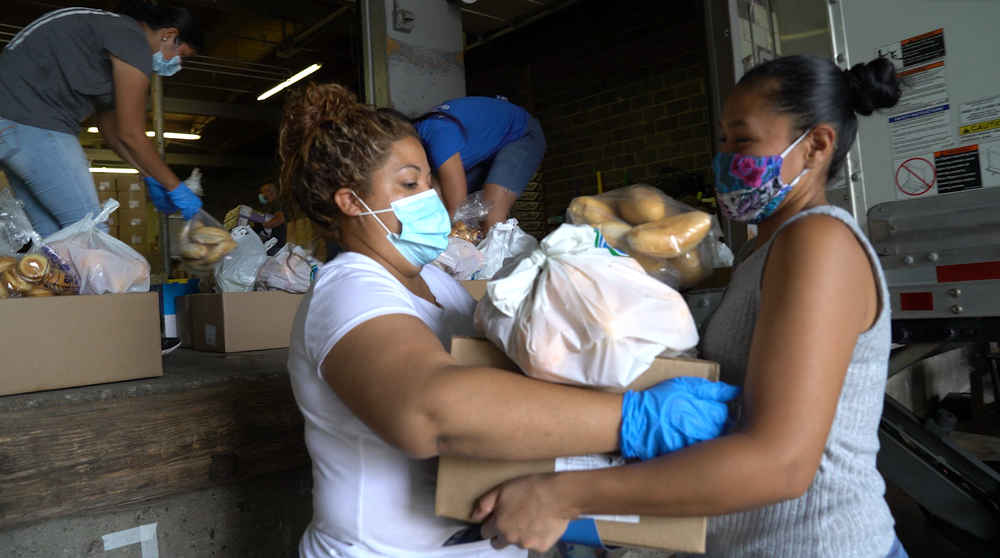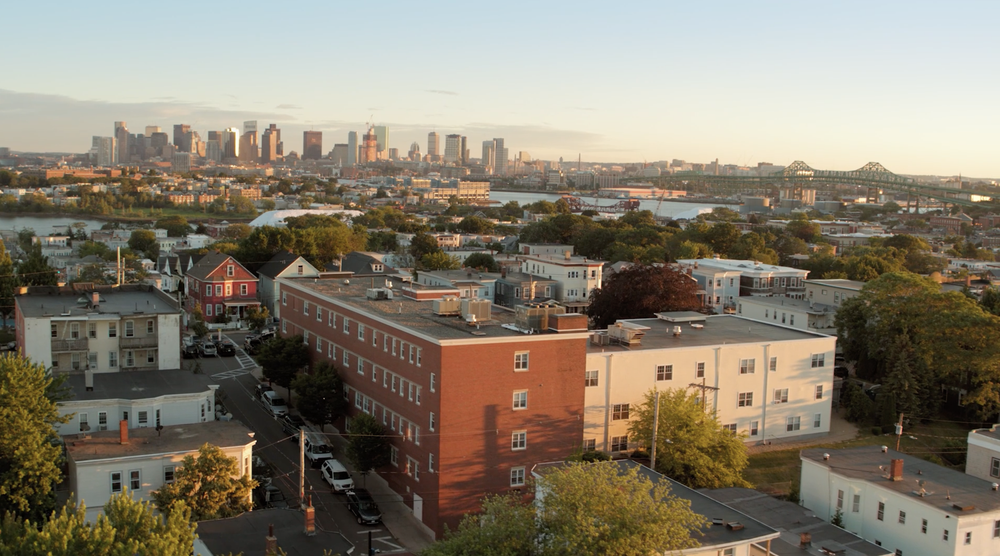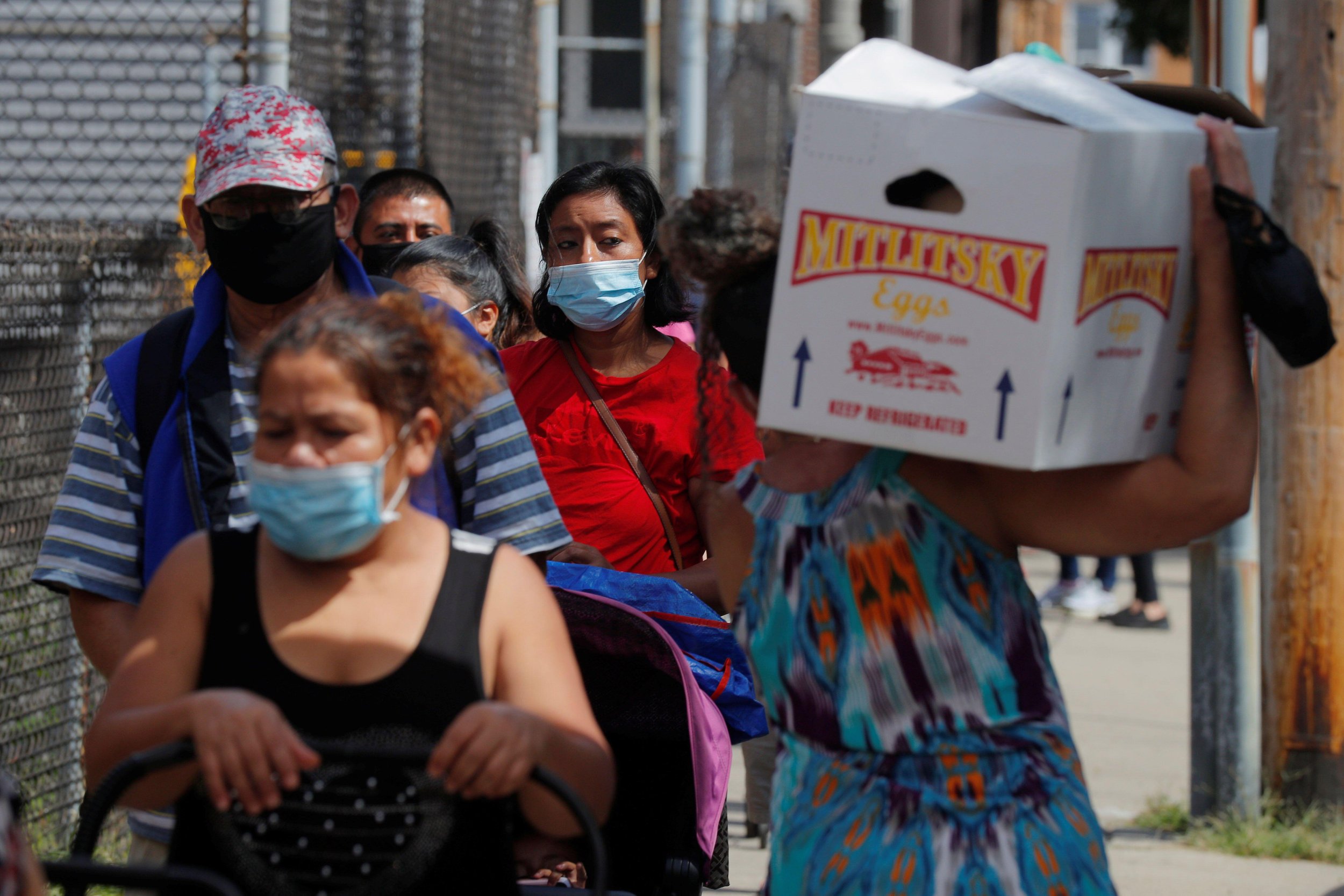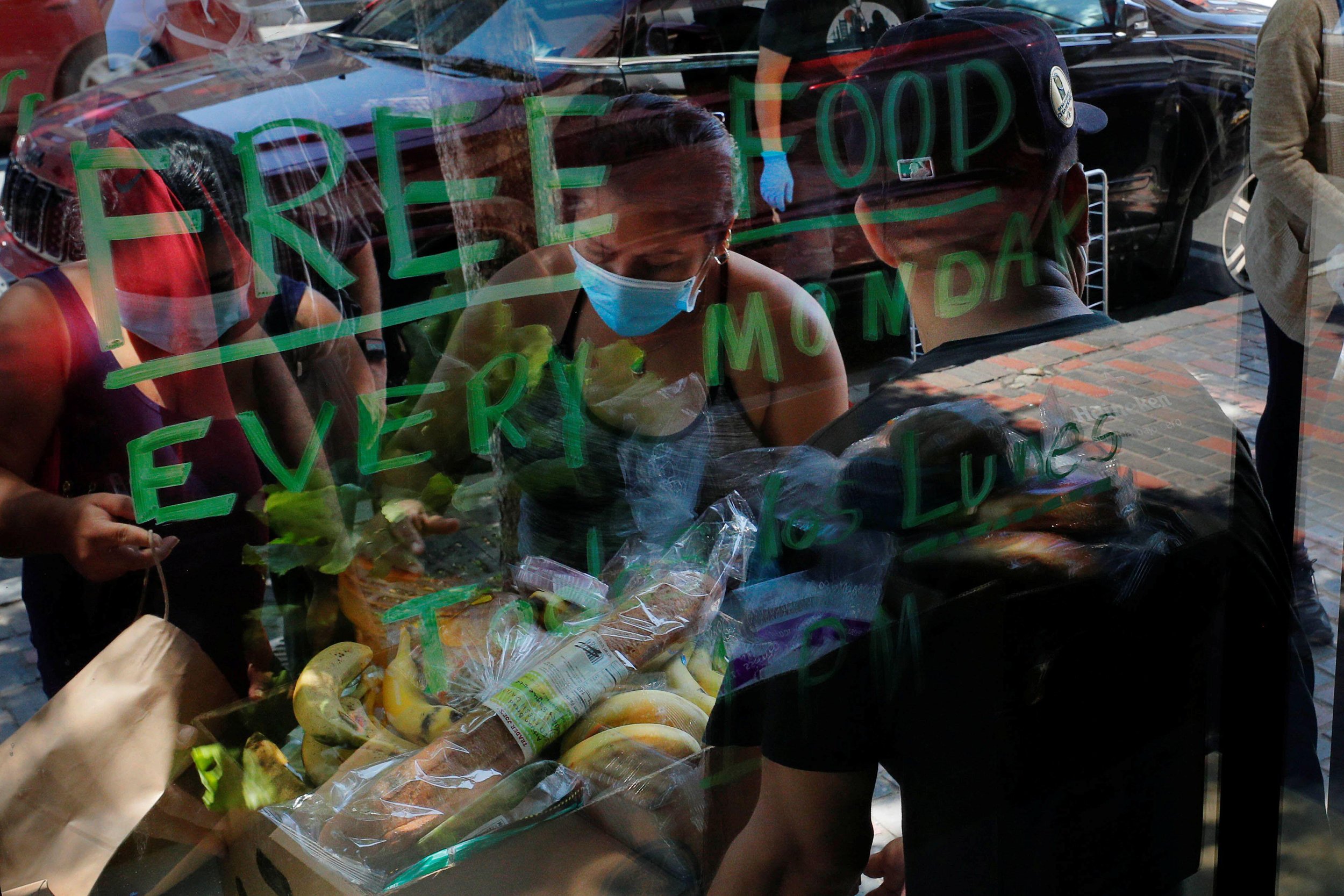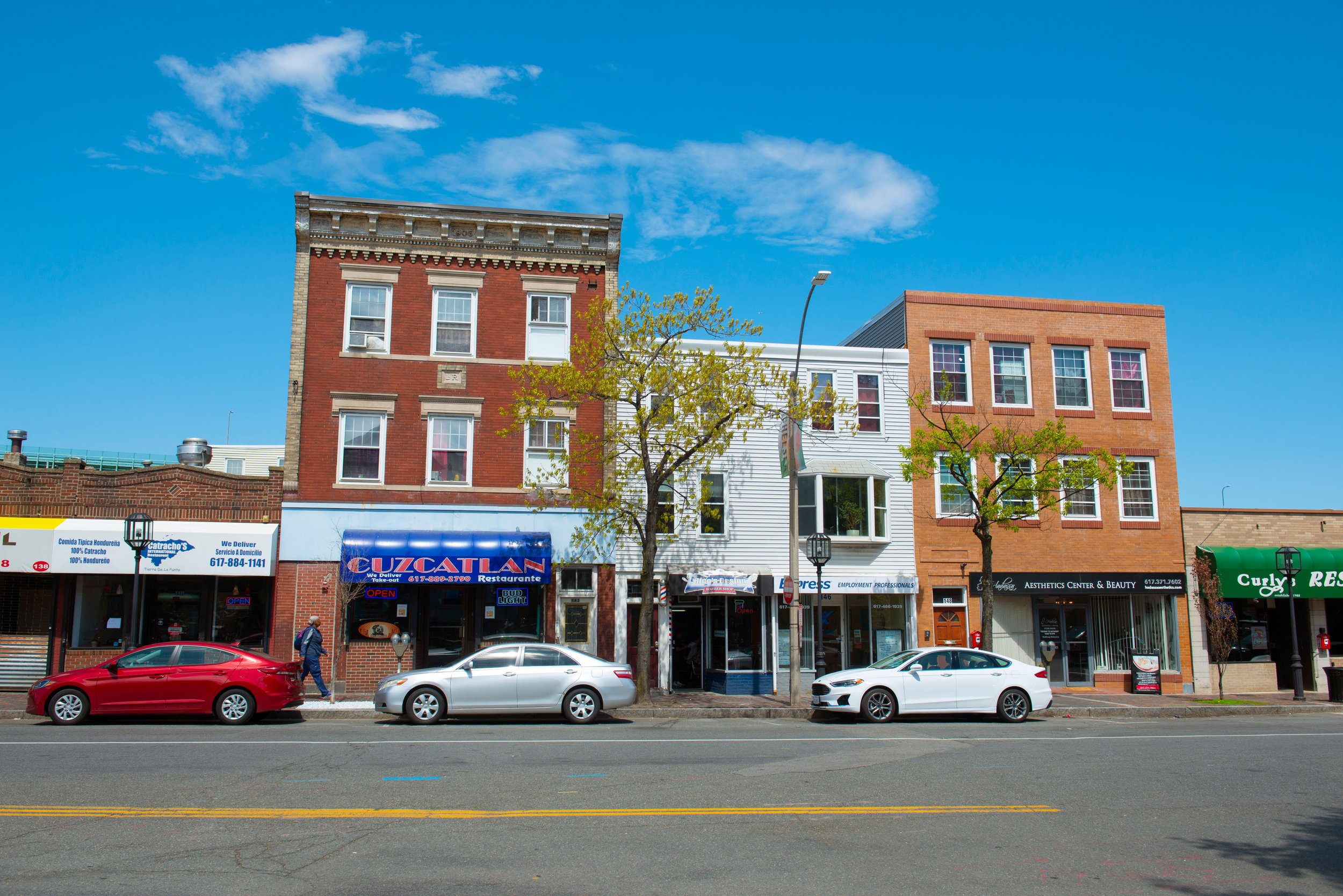
In spring 2020, a global pandemic sent the city of Chelsea, Massachusetts, spiraling into chaos. Chelsea’s frontline workers risked their lives to help others, while its essential workers’ incomes dropped to zero overnight. Hundreds of citizens waited in blocks-long lines to pick up food at a makeshift distribution center. Chelsea quickly became a COVID hot spot, and the governor was forced to call in the National Guard to distribute food boxes throughout the city. City leaders, overwhelmed by the high costs of feeding a city and humbled by their own lack of expertise to do so efficiently, came together in a desperate moment with a simple but inspired idea: give people money and let them spend it however they see fit. It was the beginning of CHELSEA EATS, the largest basic income pilot in American history: one that gave 2000 individuals and families direct payments of up to $400 a month with no strings attached.
“RAISING THE FLOOR” is the moving narrative of a majority Latinx community coming together to feed neighbors and strangers during an unprecedented public health crisis. It is the inspiring story of a group of local leaders whose sense of helplessness and concern led to bold policy innovation. The research findings from the Chelsea pilot offer lessons that resonate beyond one Massachusetts city and make a compelling case for reconsidering public policies around poverty and inequality in post-pandemic America.
